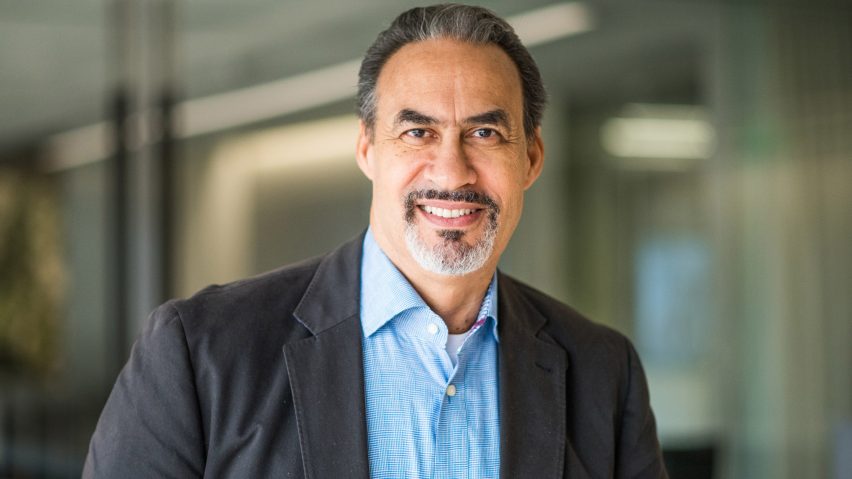Philip Freelon, the architect behind major cultural projects across the US, including Washington DC's National Museum of African American History and San Francisco's Museum of the African Diaspora, has passed away.
The African American architect died Monday 9 July 2019 in North Carolina, where he founded his architecture firm The Freelon Group back in 1990.
Freelon designed the Smithsonian National Museum of African American History and Culture (NMAAHC), which opened in September 2016 in the US capitol, in collaboration with British firm Adjaye Associates, and US firms Davis Brody Bond and SmithGroup.
British-Ghanaian architect David Adjaye said that he was "deeply saddened by the loss of Phil Freelon".
"He leaves behind an indelible mark on the practice of architecture and his legacy transcends the brick and mortar of the buildings he designed," Adjaye added.
"Phil was a pioneer, an advocate of diversity and inclusion, and his impact will only strengthen over time as we continue to see people of colour rising in the field of architecture," Adjaye continued. "More than anything, however, Phil was a dear friend and mentor."
NMAAHC is a key example of Freelon's dedication to creating buildings and spaces that honour social equality during his 42 years of practice. His projects include eight museums, seven laboratories and dozens of headquarters and schools.
Freelon designed major museums dedicated to black culture in the US
Among his other notable works is Atlanta's National Center for Civil and Human Rights, which features multi-toned cladding to represents different skin colours. Built in 2014, the centre is located in the heart of the city's tourist district, and serves as a hub for the past, present and future of the Human Rights Movement.
San Francisco's Museum of the African Diaspora, the Mississippi Civil Rights Museum in Jackson, Houston's Emancipation Park, and the Reginald F Lewis Museum of Maryland African American History & Culture also feature in Freelon's portfolio. His firm also designed Detroit's Motown Museum that is currently under construction.
Perkins + Will, which acquired The Freelon Group in 2014, similarly commended the architect's achievements and the effects of his work in a statement released following his death.
"Phil broke down socioeconomic and cultural barriers in architecture and design," said Perkins + Will. "He led the design of almost every major museum or public space dedicated to black culture in the United States."
"He was, arguably, the most significant African American architect in recent history."
"Trailblazer in the architecture community"
Perkins + Will, which also published a webpage commemorating Freelon, was joined by key figures from the American Institute of Architects (AIA) in celebrating his career.
"Phil was a trailblazer in the architecture community and a pioneer of public spaces," said AIA executive vice president Robert Ivy. "His positive influence on the profession and our society will be felt for years to come."
"He has served as a great mentor and role model for many, and was a kind and loving friend to all who knew him," added AIA's president William Bates.
Freelon was an avid supporter of fellow African American colleagues in his profession. In 2016, he presented to the AIA Board of Directors on behalf of late Paul Revere Williams. The result bestowed Williams with the AIA Gold Medal award, marking the first African American to receive it.
"This is a moment in our institute's history that is so important to recognise and acknowledge the work of a champion," Freelon said, while serving as managing and design director at Perkins + Will in North Carolina.
Freelon studied at MIT and Harvard GSD
Freelon earned a bachelor in environmental design and architecture at North Carolina State University, and a masters in architecture from Massachusetts Institute of Technology (MIT). In 1989, he was the recipient of the Loeb Fellowship and spent a year of independent study at Harvard University Graduate School of Design (GSD).
He went on to be a lecturer at several universities, including North Carolina State University, Harvard, MIT, the University of Maryland, College Park, the University of Utah, the California College of the Arts, Syracuse University, and the New Jersey Institute of Technology.
In 2012, President Barack Obama appointed Freelon to the US Commission of Fine Arts. In 2017, he was named architect of the year by Fast Company, honouring him as "America's Humanitarian Architect".
Freelon was diagnosed with amyotrophic lateral sclerosis in 2016. He is succeeded by his wife, and jazz singer Nnenna Freelon, and their three children.
Photography is courtesy of Perkins + Will.

